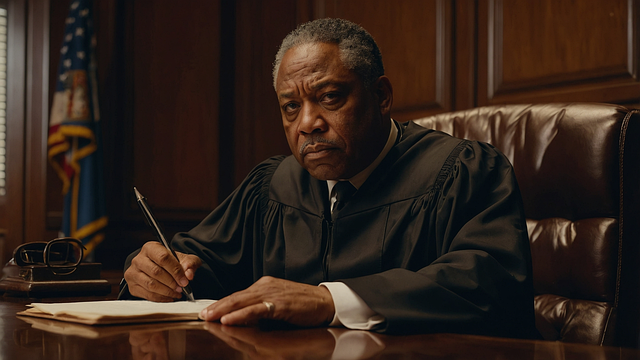Understanding and navigating the appeals process for criminal sentence decisions is paramount for both corporate and individual clients, ensuring fairness and justice within the legal system. This complex process begins with identifying grounds for appeal, such as trial errors or unfair sentencing, followed by meticulous preparation of an appeal petition and submission to the correct court. Success depends on compelling legal arguments, robust documentation, and strong advocacy guided by experienced legal counsel. High-profile cases demonstrate how strategic appeals can lead to remarkable outcomes, influencing societal views on criminal justice and providing valuable insights for legal professionals.
“Delve into the intricate world of criminal law cases and explore the process of appealing a sentence. This comprehensive guide provides an in-depth look at understanding criminal law, identifying grounds for appeal, and navigating the legal steps involved. From initial trials to challenging decisions, discover the criteria for successful appeals and real-world case studies. Learn how individuals have successfully appealed their criminal sentences, highlighting the importance of legal options in achieving justice.”
- Understanding Criminal Law Cases: An Overview of the Process
- Grounds for Appealing a Criminal Sentence: Legal Options and Criteria
- Navigating the Appeals Process: Steps to Challenging a Decision
- Success Stories and Case Studies: Real-World Examples of Appealed Criminal Sentences
Understanding Criminal Law Cases: An Overview of the Process

Criminal law cases encompass a complex process that involves various stages, from investigation to sentencing. Understanding this process is crucial for anyone interested in the legal system or facing criminal charges. It begins with an arrest, where law enforcement officials take a person into custody based on probable cause, often supported by evidence gathered during an investigation. This is followed by an initial appearance before a magistrate judge, who ensures the accused understands their rights and sets bail if necessary.
The heart of the process lies in jury trials, where both the prosecution and defense present their cases. Evidence is scrutinized, witness testimonies are heard, and the jury deliberates to reach a verdict. This democratic element is a cornerstone of criminal justice, allowing the community to participate in decision-making. Throughout this journey, individuals have the right to legal representation and can appeal a criminal sentence decision if they believe errors were made. An unprecedented track record of successful appeals highlights the importance of meticulous lawyering and the inherent checks and balances within the system, ensuring fairness for all, even in high-stakes cases involving prominent figures from philanthropic and political communities.
Grounds for Appealing a Criminal Sentence: Legal Options and Criteria

When faced with a criminal sentence that they believe is unfair or inaccurate, individuals have legal options to appeal their case. The grounds for appealing a criminal sentence decision are varied and depend on specific criteria. Legal experts in white collar defense and beyond can help navigate these complexities. For both corporate and individual clients, understanding the process of appealing a conviction or sentence is crucial.
To successfully challenge a criminal sentence, appellants must demonstrate that there were errors during the trial proceedings or that new evidence has emerged that could significantly alter the outcome. These grounds for appeal are assessed based on established legal criteria, ensuring fairness and adherence to due process. Winning challenging defense verdicts requires meticulous preparation, strategic argumentation, and a deep understanding of the law—skills honed by attorneys specializing in criminal law cases.
Navigating the Appeals Process: Steps to Challenging a Decision

Navigating the appeals process is a complex task for any criminal law case. When challenging a criminal sentence decision, corporate and individual clients alike must follow specific steps to ensure their appeal’s success. The first step involves understanding the grounds for appeal, which could include issues with the trial proceedings, legal errors, or an unfair sentencing. Once identified, these grounds form the basis of an appeal petition, a detailed document outlining the reasons for disagreeing with the original ruling.
Submitting the appeal to the appropriate court is the next crucial step. This process requires careful consideration of timelines and jurisdiction. After submission, both parties present their arguments before a panel of judges who will review the case. Achieving extraordinary results in an appeal often hinges on compelling legal arguments, thorough documentation, and effective advocacy. Throughout this journey, clients benefit from the expertise of experienced legal counsel dedicated to protecting their rights and fighting for a just outcome.
Success Stories and Case Studies: Real-World Examples of Appealed Criminal Sentences

In the realm of criminal law, success stories and case studies serve as compelling examples of how a well-crafted appeal can lead to significant outcomes. Many high-stakes cases across the country have demonstrated that even seemingly insurmountable challenges can be overcome through diligent legal representation. Winning challenging defense verdicts is not just about correcting procedural errors; it’s about unveiling new evidence, refuting prosecution arguments, and ensuring fairness in the justice system.
These real-world examples illustrate that appealing a criminal sentence decision can be a complex but rewarding process. From mitigating harsh punishments to securing acquittals, successful appeals have had profound impacts on both individuals’ lives and public perception of criminal justice. By studying these cases, legal professionals can gain valuable insights into effective appellate strategies, enhancing their ability to advocate for their clients in even the most difficult circumstances.
Understanding criminal law cases and their appeal processes is crucial for ensuring justice and providing avenues for review. By familiarizing oneself with the overview, grounds for appeal, and steps involved, individuals can navigate the system effectively. The article has illuminated successful challenges to criminal sentences, demonstrating that a well-argued appeal can lead to significant outcomes. When considering appealing a criminal sentence decision, it’s essential to act promptly and delve into the legal options available, ultimately fostering a fair and balanced justice system.






